




Caring for Psyche, Soul, and Imagination in a
Posthuman Age
September 26th - 29th, 2024

Dear Pacifica Faculty, Students, Alumni, Staff, and Fr
Welcome to Pacifica Graduate Institute’s Journey Wee our shared journey of transformation, introspection, an stepping onto campus once more or joining us for the f participant but a vital presence within the Pacifica community. Your participation helps weave the intricate tapestry that holds the spirit of this week.
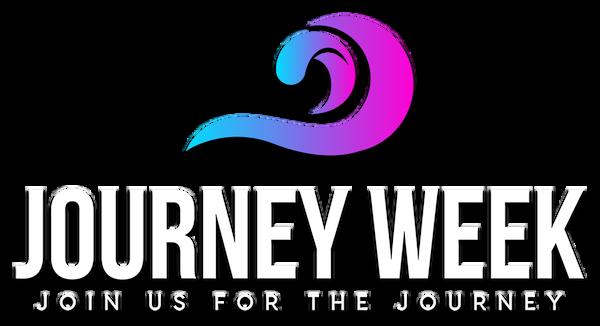
Journey Week embodies Pacifica’s enduring mission to cultivate creative learning and research deeply rooted in the principles of depth psychology. Together, we face the evolving challenges of our world, and within this sacred space, we are called to explore the profound depths of the human psyche and soul. This week has been thoughtfully designed with the present in mind but with a vision of the future a future that asks us to engage our intellects, challenge our imaginations, and inspire our spirits to greater heights. From immersive workshops and thought-provoking dialogues to creative explorations and meaningful connections, we will be guided by leading voices in depth psychology who will help us navigate the unseen, yet deeply influential, forces that shape our individual and collective experiences.
This year’s theme, “Caring for Psyche, Soul, and Imagination in a Posthuman Age,” beckons us to transcend the familiar boundaries of knowledge and identity. It asks us to reimagine what it means to be human and more than human within our complex era. As we journey through these profound questions together, I invite you to embrace the liminal spaces, those threshold moments where introspection meets innovation and our collective work can transform our inner and outer worlds.
Thank you for being part of this sacred time of reflection, learning, and growth. I welcome the opportunity to witness how the insights and connections made here will ripple far beyond this week, continuing to tend soul of and in the world.
Joyfully Serving,
Dr. Leonie H. Mattison, Ed.D, MBA President and CEO
Pacifica Graduate Institute
Welcome to Journey Week 2024, Beyond Bounda Imagination in a Posthuman Age. We are so glad yo yourself in this celebration of Pacifica Graduate Inst alumni scholars, practitioners, thought leaders and artists from diverse disciplines whose work speaks to the most pressing challenges of our time.

We invite you to delve into the unique opportunities for a holistic engagement with not only the existential questions that sit at the intersections of psychology, technology and environmentalism, but the leading edge psychotherapeutic modalities that depth scholar/practitioners are developing in response to those questions. This uniquely designed immersive learning event offers you a one-of-a-kind opportunity to experience the forward thinking depth scholarship, creativity and soulful engagement that distinguishes Pacifica Graduate Institute.
If you are considering a graduate program, please be sure to connect with our Admissions team (see the schedule for a free “Pizza and Pacifica” admissions event on Sunday) as well as the many PGI faculty who are presenting. If you are an alumnus, please be sure to stop by the Pacifica Extension table to check out opportunities to feature your work to our growing international online community. If this is your first visit to Pacifica, please let us know that so we can welcome you and connect you with one of our amazing Pacifica Student Guides.
The on-going realities of a mental health crisis underscore the imperative of Pacifica’s mission. The rich legacy of depth psychologies that set Pacifica apart, also knit us together. We invite you to join with us as we collectively commit to bringing this unique understanding of psyche, soul and imagination to a hurting world.
With You on the Journey,
Loralee M. Scott, MFA Senior Director Pacifica Extension
https://retreat.pacifica.edu

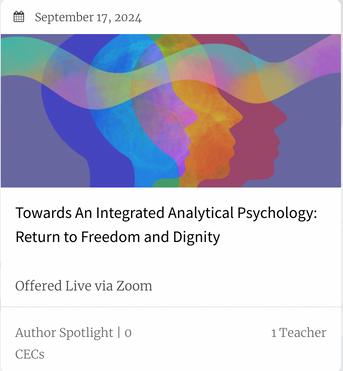

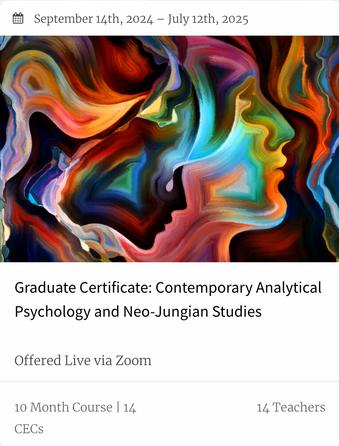
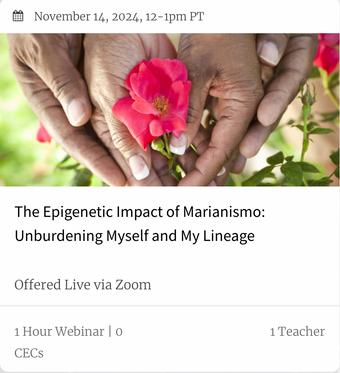
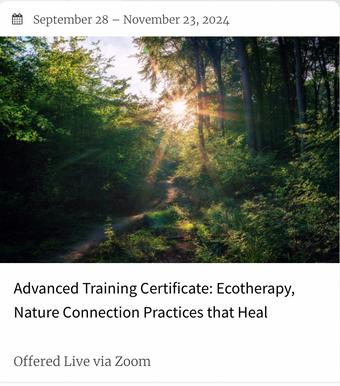
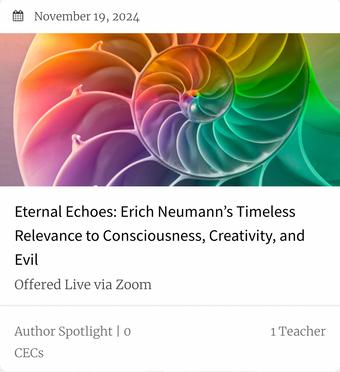
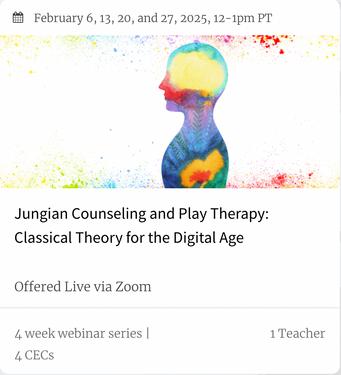
Please join us for these pre-conference events happening on Thursday, September 26 and Friday, September 27th!

Admission to the Film showing on Thursday is free but registration is required. Admission to MYTHFEST is free.
A separate registration is required to take part in the Joseph Campbell Foundation Mythic Writing Workshop.
Thursday,September26,2024

7:00PM FilmshowinginpartnershipwithIlluminateFilmFestival “Aware:GlimpsesofConsciousness”w/PGIFacultyPanel: Dr.JulietRohde-Brown,Dr.PeterDunlap,Dr.DavidOdorisio
Location:BarrettCenterontheLaderaLaneCampus (**Pleasenotethatthiswillnotbelivestreamedandaseparateregistrationisrequiredtoattend.**)
Friday,September27,2024
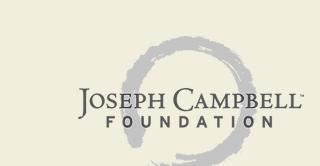
1:00-5:00PM MYTHFEST!ExperiencethePowerofMyth!
Location:walkwayoutsideofLaderaadminbuildingbetween receptionandtheBarrettCenter
2:00-5:00PM BeyondBoundariesMandala-Participantsareinvitedto contributetoacommunitymandala,findingaplacewithinthe greaterwhole.
Location:infrontoftheBarrettCenter
3:00-4:00PM JosephCampbellFoundationMythicWritingWorkshop
Location:RoomA-102;separateregistrationrequired
Friday,September27,2024
Noon-5:00PM Arrivals&Check-Ins-Lobb
5:30-6:30PM Wine&CheesePGIFacult Location:Breezewaybehind
7:00-9:30PM ArchetypalTheater-withFeaturedVocalistShellyRudolph, Iposi–NativeAmerican,IndigenousWomenVeteranandTwoSpiritDrumCircle,JohnBucher,Ph.D.PGIAlum,andJoseph CampbellFoundationExecutiveDirectorpresenting“TheOracle andtheAlgorithm:OurSearchforMythosintheMachine”and JulieTumamait-Stenslie,ChumashElderandStoryteller presenting“TheSisterSong” LivestreamedfromtheBarrettCenter
Saturday,September28,2024

7:00-8:30AM Breakfast-*FoodServedfrom7:00AM-8:00AM*
8:45-10:00AM
FeaturedDepthScholarSession–Dr.SonuShamdasani “TheEmergenceofJung’sCosmology:FromtheMythless PredicamentofModernitytoPersonalMyths” (VirtualfromLondon)LivestreamedattheBarrettCenter
10:15-11:45AM LearningSessionsI-Classrooms&BarrettCenter
11:45-1:00PM Lunch-*FoodServedfrom11:45AM-12:45PM*
1:00-2:30PM FeaturedDepthScholarSession–Dr.GlenSlater,(PGI AssociateChair&Professor)w/FacultyPanel:Between ArtificialIntelligenceandGenuineUnderstanding:WhyThe HumanThoughtProcessMatters Livestreamed@BarrettCenter
2:45-3:45PM LearningSessionsII-Classrooms&BarrettCenter
4:00-5:00PM LearningSessionsIII-Classrooms&BarrettCenter
5:15-6:45PM Dinner-*FoodServedfrom5:15PM-6:15PM*
SaturdaySeptember28,2024(Continued
7:00-8:00PM “Samsara”-FilmwithCom
Location:BarrettCenter,no
Sunday,September29,2024

7:00-8:30AM Breakfast-*FoodServedfrom7:00AM-8:00AM*
9:00-10:30AM LearningSessionsIV-Classrooms&BarrettCenter
10:30-Noon DreamingtheDreamForward:Temperanceand EmbodimentinaTechnologyDrivenWorldClosingCeremonyDr.LeonieH.Mattison&Dr.ChristopheLeMouël GrupoFolklóricoFusiónMexicana-SondelaNegra Livestreamed@BarrettCenter
Noon ProspectiveStudentsPizza&PacificawithPGIFaculty andAdmissionsTeamQ&A RoomA-102
Time Room
10:15-11:45
10:15-11:45
Panel Discussion: Transforming Our Ideologies into Practices of Shared Becoming Barrett Title
Panel Discussion: The 21st Century Queer Psyche Through a Jungian Lens-
10:15-11:45
10:15-11:45
Somatic Transference/Somatic Interaction Patterns Through the Lens Of Equine-Assisted Therapy
Presenters
Peter Dunlap, PhD
Camille Jarmie, PhD
Kevin Volkan, PhD
Marybeth Carter, PhD
Naomi Azriel, LMFT
Chema Jiménez Orvañanos, MA
Brenda Murrow, PhD
The Union of Mindfulness and Artistic Expression as Reclamation of the Soul Jacqueline Moore, MA, LMFT
Time Room Title
2:45 - 3:45
Barrett
2:45 - 3:45
2:45 - 3:45
Where We Might Go in Lieu of Posthumanism:
Building Indigenous and Decolonial Epistemologies (blended learning/experiential session)
The Magic Mirror: Imagination, Transference and Artificial Intelligence
Reconnecting with Inner Child Through Playful Attitude and Buddhist Concept of NonAttachment
Presenters
Monica Mody, PhD
Jonathan Erickson, Ph.D
Felipe Capiral, MA, LMFT
- Saturday, September 28, 2024
Time Room
4:00-5:00
4:00-5:00
4:00-5:00
Leonora Carrington: Alchemy, the Underworld, and the Goddess Barrett Title Presenters
Evans Lansing Smith, Ph.D
4:00-5:00
9:00-10:30 A-102 A-101 Barrett
Belonging and Changing Together: Convening Groups to Change Ourselves and Our Communities
Theater of Self-Reclaiming Agency and Attention Through Embodying the Imaginal: A Primer on Interoception
The Body of Water
Peter Dunlap, PhD
Camille Jarmie, PhD
Bradley McDevitt, MA, ACC
Elizabeth Flood, PhD
Learning Sessions Schedule - Sunday, September 29, 2024
Time Room
Title Presenters
Why Humanism Is Dehumanizing and Why Posthumanism and AI Return Us to an Indigenous Cosmology
9:00-10:30 Fruiting Bodies of the Collective Unconscious
Dylan Martinez Francisco, PhD
Pamela Hancock, PhD
9:00-10:30
Tickling the AI Trickster: Reoccupying the Archetypal Imaginal Through Movement and Storytelling
Carol Burbank, PhD
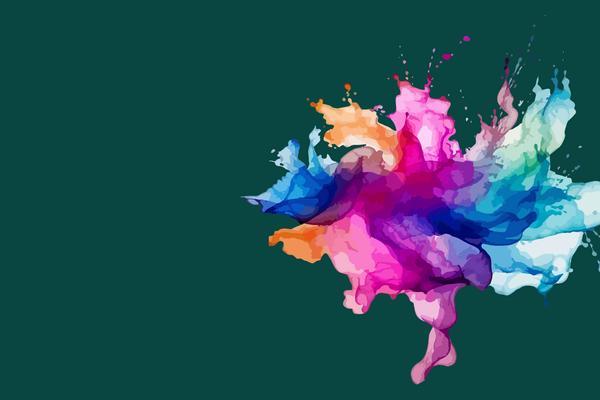
Transforming Our Ideologies into Practices of Shared Becoming - Peter Dunlap, PhD, Camille Jarmie, PhD, and Kevin Volkan, PhD
Saturday, September 28, 10:15 – 11:45 AM, Barrett Center
In this lecture and experiential workshop we will explore our group identities, their ideological shape, and what drives and restrains their development. Such exploration is rooted in an integration of systems and psychoanalytic perspectives on groups. This perspective enables us to understand how large group identities form, how each of us participates in these group identities, and how each of us have the opportunity to learn how to intervene, minister to, treat and transform our large group identities.
a. Large group and political conflict is commonly understood through the lens of external sociopolitical factors, often depicted using 'rational actor' models of human behavior. While acknowledging the significance of these external factors, internal psychological factors at the individual level play a crucial role in comprehending large group and political conflicts. The psychological perspective of psychoanalysis integrates defense mechanisms like splitting, projection, and projective identification in understanding group behavior, including large group dynamics. These psychological defense mechanisms can clarify how human imagination contributes to the development of destructive ideologies that may lead to warfare or genocide.
b. Based on this understanding we can extend psychotherapeutic practices that work for individuals and small groups to larger groups. This can be accomplished by supporting community and organizational leaders to understand the way in which their identities are woven into larger group identities and can use that weave to develop modes of treatment.
c. Through exploring our various individual and group identities we can come to understand the role of privilege, domination, and victimization in holding problematic identities together.
d. By telling the story of personal and group identities we can begin to undo what restrains these identities, particularly focusing on the role of emotional pain, anguish, fear, grief, and hatred.
Panel Discussion: The 21st Century Queer Psyche Through a Jungian LensMarybeth Carter, Ph.D, Naomi Azriel, LMFT and Chema Jiménez Orvañanos
Saturday, September 28, 10:15 – 11:45 AM, Room A-102
Shame stymies the process of individuation by making it difficult for a person to engage with the images that spontaneously arise from their psyche, which often imply questioning collective norms. We will explore the ways in which queerness, through intergenerational bonds of kinship, can offer

us a politics of survival or resistance to shame. By exposing the unhappiness of conforming to preconceived notions of normality/desirability/maturity/health, queerness in analysis can potentially ally itself with those parts of the patient that are aiming to express their deeper nature, even or especially when the process implies going against the parameters of normality that are relevant within the very institution of analysis itself. Further, we aim to interrogate the intersection of queerness and analytic psychology as a potential incubator for liberatory and transformative energy, carrying forth the spirit of deep authenticity and embodiment into the greater culture. For it was Jung who was enlivened upon discovering that he was a “laughing being of the forest,” who existed for himself instead of believing in or propagating ideals put forth by his culture and society. Similarly, creating 21st-century relevance for analytical psychology will help to bring the lives of LGBTQ individuals further out of the cultural shadow, and provide for an even greater possibility of authentic lived experience. We will look at humanity’s shared work towards dissolving (gender and other) binaries, such that the transcendent function can emerge and the infinite soulfulness of gender can be present in our individual and collective lives. By expanding the Jungian paradigm, all people find their way to their inner “laughing being of the forest,” so that not only the LGBTQ community, but all of humanity, grows in a direction of deep soul authenticity and aliveness.
- Brenda Murrow, Ph.D
Saturday, September 28, 10:15 – 11:45 AM, Room A-140
“The main problem of medical psychotherapy is the transference. In this matter Freud and I were in complete agreement.” (Jung, 1989/1963 , p. 212). Individuals bring their experiences, histories, and patterns of relating to the therapeutic encounter and how these elements interact unconsciously with those of the therapist, through psyche, is welldocumented in the field of depth psychology (McWilliams, 1994). Jung’s discussion of the concept in 1944 and many others since have contributed to therapeutic practices for interpreting transference and counter-transference, which have been a standard for decades in the training of depth practitioners.
Yet, non-verbal patterns of transference and counter-transference between the bodies of the patient and therapist are much less understood, despite the many ways the somatic layers of awareness are constantly in interaction, akin to the transference and counter-transference experiences through psyche.

Depth psychology has developed established ways to assess and interpret the transference and counter-transference in the treatment of psyche, and this presentation considers the implications of what a similar practice of assessment and interpretation of somatic transference and countertransference could provide to the treatment.
Technological advances continue to increase the ability to obtain data about body-based interactions during the therapeutic encounter via wearable biometric devices, and many of the initial theories of Freud and Jung show increased merit as measurement capabilities are enhanced. This presentation will highlight research on somatic interaction patterns, being conducted in order to aid practitioners in identifying and assessing their therapeutic significance. The presenter and students are working to understand this phenomena by observing it through the lens of equineassisted therapy. Horses are incredibly responsive and demonstrate many bodily reactions when working therapeutically to support humans, which enables an extensive view of body-based interaction patterns.
Much of the information gleaned from the wearable biometric devices is from the physiology we share with horses, and the presentation will also include a discussion of how the correlation of data from biometric devices that are wearable for humans, and for horses, promises to yield a unique way to consider the ways this phenomena occurs between species as well.
Jacqueline Moore, MA, LMFT
Saturday, September 28, 10:15 – 11:45 AM, A-101
In a world that continually extends into the artificial and non-organic, humans continue to dissociate their psychic awareness outside the body into technological realms. As humans continue to immerse in AI generated imagery and realities, the human imagination risks growing inert. The antidote then is to develop greater somatic awareness and cultivate greater imaginal capacities; this is a return to the Self. The practice of mindfulness originates around 500BC in Theravada Buddhism. Referred to as the original psychology, it continues to stand congruent with modern psychology. Mindfulness meditation is traditionally known for the generation of awareness and insight as it prompts careful observation of the vicissitudes of the body, feelings, the mind, and the existential experience of life itself while offering a clear methodology to eradicate suffering. As practitioners cultivate a more intimate relationship with their psyche, an expressive action becomes imperative to maintaining

The Union of Mindfulness and Artistic Expression as Reclamation of the Soul (Cont.) integration and engagement in contemporary culture as well as reclaiming the humanity of abstract intelligence. The creative arts process serves this purpose as it amplifies the imaginal capacity and engages the entirety of psyche body, mind, feelings, emotions, conscious and unconscious into a generative act of creativity. The objective artistic production then creates a projective field to develop greater insight individually and collectively. Art has long served to refresh the collective unconscious into consciousness through community, conversation, and connection. This workshop will focus on establishing the basic foundations of mindfulness in both theory and praxis. After a period of practice, participants will be prompted into creative process to amplify and efflux their internal phenomenon. The workshop will conclude with community sharing and reflection bringing people back into direct embodied conversation refreshing empathy and altruism. The union of mindfulness and artistic expression is a reclamation of soul.
Saturday, September 28, 2:45 - 3:45 PM, Barrett Center
The genealogy of posthumanism as a philosophy permits us to see its links to colonial/imperial projects and warfare. This presentation will invite us to consider where we might go in lieu of posthumanism. Locating technology as a premise of making that arises out of the entanglement of body-mind-soul-spirit with Earth allows us to question the inevitability of exploitative technology predicated on environmental destruction (such as AI research). Equally, it allows us to rise above a naïve faith that technological innovations that have their origin in the military industrial complex have benevolent aims. Instead, the presentation will attend to the elemental conversation with the Earth that is seeking to make itself known. What futures can emerge when we awaken to our inner capacity for relationship with(in) a multi-species world and co-create with the same instead of superseding the responsibility of relationship to algorithmic processes that have been pre-programmed? Through the indigenous and decolonial epistemologies of imagination, story, poetry, prayer, and play, we will realign ourselves with the deeper story that emerges as the riverbed of our knowing, watered with multiple streams comprising mythic and ancestral intelligence together with the multiple intelligences that form our planetary consciousness. Casting our awareness back to the seven generations past and forward to the seven generations to come through psychospiritual modalities making possible embodied and inspirited critique, revelation, and empowerment we will seed renewed understandings of human consciousness, spirit, and evolutionary communal care.

Saturday, September 28, 2:45 - 3:45 PM, Room A-101
Emerging artificial intelligence models demonstrate an extraordinary ability to mimic human language to the point where they more easily be mistaken for persons. An increasing number of apps in the marketplace seek to harness this capacity to provide AI companions, ranging from friends to romantic partners to therapists. These apps interact with the user using predictive language responses while failing to exhibit consciousness awareness, offering a blank canvas for users to project their relational needs and fantasies. This paper explores the psychological consequences of attempting to form a relationship with a non-conscious, non-consenting other. The personas fabricated by these apps cannot meaningfully choose the parameters of their relationships, and indeed cannot consent to be in the relationship at all. They offer a frictionless fantasy of what relationship would look like if the other person had no needs and served no purpose except to entertain and engage the user. Far from providing a solution to our current epidemic of loneliness, these apps may instead have a corrosive effect on the development of social skills, driving their users further into isolation. Jungian psychology, and in particular the practice of active imagination, may provide as an alternative roadmap to how we conceive relationships between humans and artificial intelligence. Designed with imaginal engagement in mind, these technologies have the potential to hold up a mirror to the psyche, and perhaps even point the way back to relationship in the lifeworld.
of Non-Attachment - Felipe Capiral, MA, LMFT
Saturday, September 28, 2:45 - 3:45 PM, Room A-140
We begin our human journey as a free being: as a child whose actions are not tethered to any purpose, unconcerned what tomorrow may bring, spontaneous, and unself-conscious. As our lives become more complicated while growing up, we become estranged from the innocent Child who has retreated at the core of our soul. The further we stray away from that core, our soul gets weighed down by anxiety and depression. Our actions become driven by purpose as we increasingly take our self-image, our careers, and ourselves too seriously. We then lose the lightness of being that comes from accepting things without any demand. Darkness and heaviness take over as we invest our life force to meet the incessant demands of what the psychologist Karen Horney termed as the “tyranny of the should.” Suffering then becomes our constant companion, bearing witness to the truth of what

the philosopher Alan Watts once said, “Man suffers only because he takes seriously what the gods made for fun.” Fun has the quality of light heartedness, the antithesis of the dead seriousness that permeates the world of someone who gets busy appeasing the demands of life’s many “shoulds”. It seems obvious that the answer to the suffering of man’s soul is to connect once again to the core where that Child retreated in the face of traumatizing life experiences. But how? In this paper, I will explore how a playful attitude towards life can be that bridge. Along with that exploration, I will highlight the central importance of the Buddhist concept of non-attachment to developing this playful attitude. That playfulness would allow us to live our life, not driven by purpose but simply motivated by the delight that comes from participating in life. Through that, we regain our innocence and ultimately our freedom.
Carrington: Alchemy, the Underworld, and the Goddess - Evans Lansing Smith, PhD
Saturday, September 28, 4:00 - 5:00 PM, Barrett Center
This presentation amplifies my recently published article on Leonora Carrington’s fiction in Psychological Perspectives with the analysis of selected paintings, focusing on themes central to her work: the alchemical transformation of self and world, the recovery of the Grail and the archetypal feminine, and a feminist re-visioning of an eco-apocalypse, moving towards a posthuman world. Participants will be asked to write a brief response to one the paintings to share with the group.
Saturday, September 28, 4:00 - 5:00 PM, Room A-102
Peter and Dr. Camille will host a conversation about the dynamic relationship between psychotherapy and citizenship. While psychotherapy is often thought of as "internal work" and while community engagement can be thought of as "external work,” the integration of these is possible and necessary. This integration begins in stories of belonging which help us understand the reasons we become healers. Such stories then extend from the consulting room into our communities and into the fabric of our shared collective history. Rooted in our shared history we are learning to focus on our shared becoming, that is, the way we are all fragments of an emerging, shared future.

Through story telling we can learn to tell this deeper story, to find the way in which we can fit ourselves back together, into a shared remedy, into a highly practical vocational and professional path that enables us to become the people called for by our time.
More specifically, in the clinical psychology program at Pacifica Graduate Institute, we recognize the need to integrate the healing values of psychotherapy with the justice values that concern every community. In psychology this means that we broaden our attention, not only focusing on the inner work of addressing depression, anxiety, or worse but also on the outer work of attending to the realities of our communities.
The breath of such attention is supported by practices that cultivate the essential experience of belonging, which is the birthright of every human being, to belong to a community. With the ballast of belonging established, integrating healing and justice values becomes more possible. And, down this path, we find ourselves capable of helping each other become the people called for by our time. We see this as our shared becoming.
Saturday, September 28, 4:00 - 5:00 PM, Room A-140
Our modern world, despite its advancements, presents a stark paradox: unprecedented access to comfort and ease alongside a pervasive sense of emptiness and lack of meaning. We’re inundated with information yet starved for genuine connection and purpose. This existential meaning crisis manifests in rising anxiety, depression, and disconnection from ourselves and the world around us. Drawing inspiration and methodology from the transformative power of theater and its shamanic roots, as well as depth psychology and cutting-edge cognitive science, Theater of Self offers a unique approach to addressing the most pressing problem spaces of our time. By integrating actor training techniques with mindfulness in motion practices participants will develop tools to:
Strengthen Metacognition: Enhance self-awareness by observing thoughts and behaviors in real-time, in real life scenarios.
Deepen Somatic Integration: Bridge the body/mind connection for improved presence and social/emotional intelligence.

Cultivate Resilience: Develop adaptability, confidence, and the capacity for meaningful connection.
Leadership Skills: Enhance communication, collaboration, and the ability to navigate complex situations with grace
Creative Potential: Unlock right-brained, intuitive thinking, problem-solving skills, and a renewed sense of reenchantment with the world.
Please bring a notebook or journal and come prepared to move, gently. This work accommodates all participants regardless of creative interest or experience, body type, physical ability, or inclination. No acting required.
Saturday, September 28, 4:00 - 5:00 PM, Room A-101
"The Body of Water" delves into the profound connection between human bodies and water, examining this relationship through the lenses of indigenous and ecofeminist perspectives, alongside the framework of body politics. It articulates how water is not merely a physical substance but a vital, animate entity that plays a central role in various cultural narratives and bodily experiences. Indigenous perspectives highlight water's sacredness, viewing it as a life-giving force intertwined with spiritual and communal well-being. This view challenges the commodification and exploitation of water resources, advocating for a respectful and reciprocal relationship with nature. Ecofeminist theories contribute to this discourse by linking the colonization of women and nature, underscoring how patriarchal structures perpetuate environmental degradation and social inequalities, reflecting a broader theme of control and subjugation. The essay explores how ecofeminism critiques the dualistic thinking that separates humanity from nature, instead promotes an embodied understanding of humans as part of the ecological web. This perspective emphasizes the need for sustainable and equitable practices that honor both women's roles and environmental health.
Body politics further enriches the analysis by addressing how power dynamics shape bodily interactions with water. It examines issues such as access to clean water, the impacts of pollution, and the socio-political struggles surrounding water rights. Through examining themes of nakedness

and nudity, permeability, vulnerability, and liberation, it addresses the societal conditioning that influences our perception of the body, particularly in water, and how this conditioning manifests as shame or freedom. The essay argues that bodily experiences with water are deeply politicized, reflecting broader issues of justice, equity, and human rights. The author reflects on the personal struggle and broader environmental concerns, questioning the impact of encouraging more contact with nature in a modern society that is inherently harmful to it. Through an interdisciplinary approach, the essay underscores the necessity of integrating indigenous knowledge and ecofeminist principles to foster a more holistic and just relationship with water. It calls for a reimagining of water policies and practices that respect the intrinsic value of water and the interconnectedness of all life forms, advocating for a future where both human and environmental well-being are prioritized.
Sunday, September 29, 9:00 - 10:30 AM, Barrett Center
This learning session will focus on why humanism is ultimately dehumanizing, genocidal, and ecocidal, and thus, why posthumanism and AI return us to an Indigenous cosmology that grounds human nature in a larger relational, complex reality that includes the technological and ‘artificial’ as natural, conscious, and sacred a relational complex whole that is essential to a depth psychological understanding of the psyche and human wholeness. Humanism is based on the illusion that the measure of what it means to be human can only come from humans themselves not any larger context or more-than-human considerations. Humanism strips humanity of its spiritual and ecological context, making humanity answerable to nothing beyond itself and its own interests and aims. While this move turns everything particularly the world of minerals, plants, and animals into a means of human satisfaction, it also, eventually means that humanity itself lacks any meaning apart from being a means for human satisfaction. When human satisfaction is the measure of all things, even humans eventually succumb to this measure, becoming a dehumanized commodity. In addition, humanism did not arise in a cultural vacuum. It arose in a European context in which only certain humans were considered the measure of humanity, which meant that those who did not fit this measure, failed to be considered human at all. This resulted in certain humans being particularly

an Indigenous Cosmology (Cont.) exploited or eradicated depending on what satisfied the humans of the dominant culture. What this means is that humans need a larger spiritual, ecological, and technological context to be truly human, a context that posthumanism and AI restore. My presentation will provide both depth psychological and Indigenous reasons why posthumanism and AI, paradoxically enough, return us to an animated culture and cosmos and so embody what is necessary for humans to be humane and whole.
Sunday, September 29, 9:00 - 10:30 AM, Room A-102
This 90-minute workshop entitled “Fruiting Bodies of the Collective Unconscious” will first explore my current research into the use of psychedelics and symbol to help people connect to the archetype at the center of their purpose. My investigation has been exploring entheogens and symbols as beacons from the archetypal realm that manifested from the collective unconscious to help guide humanity. Then, utilizing my 16’ round portable labyrinth mat, I will guide participants into the center of the labyrinth to connect to an archetype that wants to make contact with them. This will be done through journey work as well as Archetype Dice that I designed for my self-analysis system called Mythic Mapping. Participants will then have an opportunity to make an ARCHETYPE CARD utilizing a collage method that I am currently testing with research participants. Those in the workshop will then learn an active imagination method to use the card on their own and continue to engage with the guiding force they made contact with during our work together, utilizing a specially designed handout that they will take home along with the card. All art-supplies and accompanying materials will be provided.

Movement and Storytelling - Carol Burbank, Ph.D
Sunday, September 29, 9:00 - 10:30 AM, Room A-140
Although tech companies are enthusiastically marketing AI programs as a liberating force, artists, writers, and arts-based researchers know that the creative potential of the human psyche cannot be encapsulated in aggregated algorithms. AI, as currently explored, is a trickster, sometimes posing as a simple product practical as a washing machine, sometimes promising God-like gifts that offer fast, collectivized solutions to save our skins (or destroy us all). In the face of AI’s propagandistic “posthuman” threats and promises, we have an opportunity to reclaim our own, uniquely human trickster natures. This workshop will use writing, movement, and storytelling to play with archetypes and offer a prism to expand trickster narratives, awakening each person’s unique shapeshifter/trickster insights and building collective energy to generate a uniquely human space of possibility. We will focus on the subcultural, subordinated, othered stories that machine algorithms cannot perceive or adequately define. These stories of Jezebel, Loki, Inanna, Mercury, and countless creatures from nature (Coyote, Mantis, Spider), are the clowns, mystics and magicians who help us navigate and transcend boundaries. They are the friends we need now, to rehumanize the imaginal, joyfully magnetize the mess, stir the simmering cauldron of our psyches. In this workshop, participants will play with trickster as they feel it in their bodies and visions, choosing one archetypal trickster who calls them to resist Artificial Intelligence algorithms with Archetypal Imaginal activism.
We will reclaim the mythos of the human through serious play, opening a space for a creative and unpredictable spark of holistic soul-centered intelligence. Whether that leads to a project, a renewed goal, or a deeper sense of authentic presence, participants will celebrate their own unique trickster nature, the rebellious, necessary, creative force that sets us free from unconscious artificial borders.

Dreaming the Dream Forward: Temperance and Embodiment in a TechnologyDriven World - Dr. Leonie H. Mattison, Ed.D. & Christophe Le Mouël, Ph.D., Sunday, September 29, 10:30 - 12:00 Noon, Barrett Center
In a world where technology connects and divides us, the crisis of imagination is becoming ever more apparent. As our digital realities increasingly shape how we see ourselves and others, we must ask how we reclaim the dream of a unified self in a fractured digital age. Christophe Le Mouël and Dr. Leonie Mattison will explore how ancient wisdom and depth psychology can offer us pathways through these complexities, helping us navigate the rapid evolution of technology while remaining grounded in the human soul.
Le Mouël invites us into the archetypal background of artificial intelligence, invoking Carl Jung's mandala-shaped sun from The Red Book (p. 125) as a symbol of the ongoing evolution of human consciousness and the embodiment of a new God-image. He challenges us to see that while AI may push the boundaries of human potential, it cannot fully embody the richness of human experience or our deep, unconscious connection to the self. His exploration raises questions: How do we ensure that the human soul remains central in an AI-driven world? How do we retain our connection to the unconscious when so much of our daily life is projected onto the digital screen? Dr. Mattison invites us to explore the archetypal tension between technological advancement and the human psyche, using Cristoforo de Predis' image of Mars with Aries and Scorpio to illustrate the dual forces in today's digital age. While AI expands human potential, true embodiment remains irreplaceable the soulful, living connection to self, others, and the world. AI's potential (Aries) drives innovation but, if not carefully managed (Mars), carries the risk of disruption to our emotional balance (Scorpio). Dr. Mattison calls for embracing temperance the alchemical process of blending opposites requiring balance, patience, and ethical awareness to create harmony. This mindful balancing act is essential as we dream forward, ensuring the human spirit remains a grounding force amidst technological transformation. She leaves us with two key questions: How can we practice temperance to maintain psychic balance in a tech-driven world? And how do we keep soul and psyche at the center as AI integrates into our lives, nurturing our connection to the deeper, more soulful aspects of ourselves? Together, their insights reveal a powerful synergy between embodiment and temperance and an invitation for us to think deeply about integrating AI thoughtfully, ensuring that technology enhances rather than disrupts our inner world, keeping the human essence at the heart of progress.
Friday, September 27 from 5:30 - 6:30 PM
Join us on the East Lawn for a Wine & Cheese Reception to connect with PGI Faculty, Presenters and Alums!
Friday, September 27, 2024
5:30 PM - 6:30 PM Breezeway behind the Barrett Center at the Ladera Lane Campus
Hors d'oeuvres and wine will be provided.
The first keynote presentations will start directly after the reception at 7 PM in the Hope to see you t

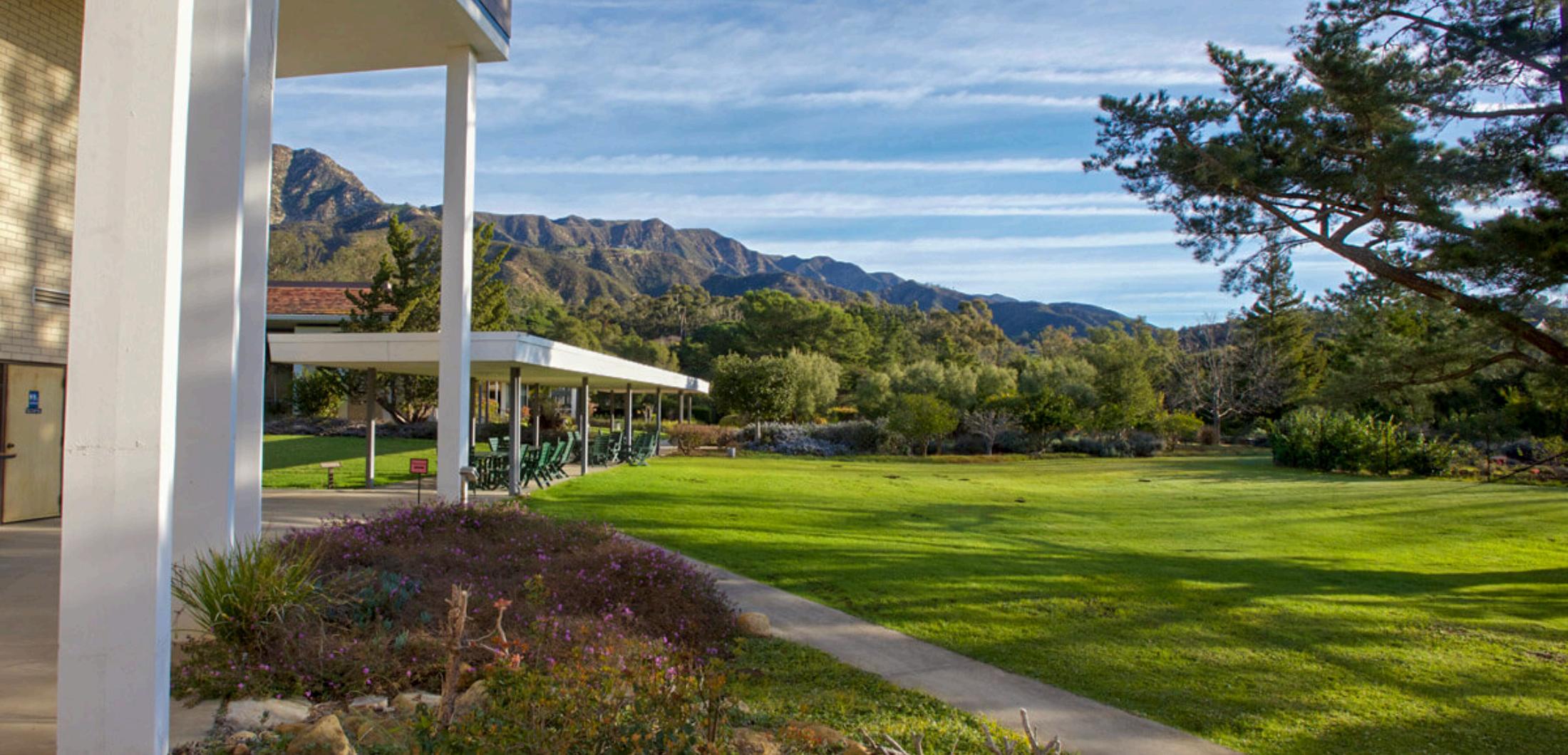

The Journey Week Conference provides 10 hours of Continuing Education Credits for Psychologists, LMFTs, LCSWs, LPCCs, LEPs, and Registered Nurses. Please note that CECs are offered for on-campus attendees only.
If you are looking to obtain Continuing Education Credits (CECs) for this conference, you must have paid the $30 CEC fee on your registration form, sign-in and sign-out on the provided sign-in forms for each day of the conference, and turn in an evaluation form at the end of the conference. The sign-in forms and evaluation form will be on a table in the back of the Barrett Center. The evaluation form will be emailed to you after the conference weekend.
The required presentations are listed on the next page.
*It is your responsibility to sign-in and sign-out on the provided sheets for each day of the conference. Full attendance is required to obtain a certificate - no partial certificates will be issued.*
Failure to sign-in and out each day and/or failing to complete an evaluation form will result in disqualification from earning CEC hours for this program.
CEC Certificates will be emailed out to those who qualify at the end of October.


Friday, September 27:
7:00 – 9:30 PM – The Oracle and the Algorithm: Our Search for Mythos in the Machine- John Bucher
Saturday, September 28:
8:45 – 10:00 AM – Featured Depth Scholar Session- The Emergence of Jung’s Cosmology: From the Mythless Predicament of Modernity to Personal MythsSonu Shamdasani
10:15 – 11:45 PM – Transforming Our Ideologies into Practices of Shared Becoming - Peter Dunlap, Camille Jarmie, Kevin Volkan
1:00 – 2:30 PM – Featured Depth Scholar Session- Between Artificial Intelligence and Genuine Understanding: Why the Human Thought Process Matters- Glen Slater & PGI Faculty Panel
2:45 – 3:45 PM – Where we Might go in Lieu of Posthumanism: Building Indigenous and Decolonial Epistemologies - Monica Mody
4:00 – 5:00 PM – Leonora Carrington: Alchemy, the Underworld, and the Goddess- Evans Lansing Smith
Sunday, September 29:
9:30 – 10:30 AM –Why Humanism is Dehumanizing and Why Posthumanism and AI Return Us to an Indigenous Cosmology - Dylan Martinez Francisco
10:30 – Noon – Dreaming the Dream Onward – Closing Ceremony- Dream Weaving Circles- Dr. Lee & Dr. Christophe Le Mouël


Sonu Shamdasani (MSc, PhD) is a London-based author, editor-in-chief, and professor at University College London. He is the 2024 recipient of the IAJS annual C. G. Jung Award. A significant portion of his research and writings focus on Carl Gustav Jung (1875–1961) and cover the history of psychiatry and psychology from the mid-nineteenth century to current times.

Sonu Shamdasani edited the first publication of Jung’s major work: Liber Novus, The Red Book. Although its title had been well known for years, it was not until its publication in 2009 that its contents were revealed to the public and practicing psychotherapists and other scholars.
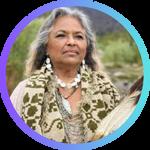
Julie Tumamait-Stenslie has traced her family lineage from her father, Vincent Tumamait, to at least 11 known Chumash villages and as far back as the mid-18th century. Ms. Tumamait-Stenslie has worked as a cultural resource consultant from Malibu to Santa Barbara to the Channel Islands, providing guidance for private groups and state, county, and city regulatory agencies, including the Ventura and Santa Barbara County District Attorney’s offices. She is well known throughout Ventura County and beyond for her Chumash cultural education programs and also performs ceremonies according to her native ways, such as weddings, burials, naming ceremonies, and blessings. Ms. Tumamait-Stenslie is a commissioner on the California Native American Heritage Commission and on the board of the Santa Clara River Conservancy. She serves on the accessions committee for the Museum of Ventura County.

John Bucher is a renowned mythologist and story expert who has been featured on the BBC, the History Channel, the LA Times, and on numerous other international outlets. Holding a PhD in Mythology and Depth Psychology from Pacifica Graduate Institute, he serves as Executive Director for the Joseph Campbell Foundation and is a writer, podcaster, storyteller, and speaker. He has worked with government and cultural leaders around the world as well as organizations such as
HBO, DC Comics, Paramount Pictures, Nickelodeon, A24 Films, Atlas Obscura, and The John Maxwell Leadership Foundation, bringing his deep understanding of narrative and myth to a wide array of audiences. He is the author of six influential books on storytelling, including the best-selling Storytelling for Virtual Reality, named by BookAuthority as one of the best storytelling books of all time.


Glen Slater, Ph.D., was born and raised in Australia. He moved to the United States in 1992 to study Jungian psychology. He has degrees in Religious Studies and Clinical Psychology and has taught for over 25 years at Pacifica Graduate Institute in Santa Barbara, California, where he is Associate Chair of the Jungian and Archetypal Studies Program. He has written extensively for Jungian publications and edited the third volume of James Hillman’s Uniform Edition, Senex and Puer, as well as the essay collection, Varieties of Mythic Experience. He writes on Jung and film, the psychology of religion, and depth psychology and technology. His long-awaited book, Jung vs. Borg: Finding the Deeply Human in a Posthuman Age, was recently published in January 2024.

Dr. Leonie H. Mattison, Ed.D., is a trailblazing leader as the first Black woman and the fourth president of Pacifica Graduate Institute, the only institution dedicated exclusively to the study of depth psychology. Grounded in her Jamaican heritage and commitment to education and research, Dr. Mattison’s leadership philosophy centers on putting students first, ensuring their experience is at the heart of everything Pacifica does. As a consensus-builder and advocate for transparency, she leads with integrity and a deep belief in the power of collective effort. Her bold vision is to make depth psychology accessible to all, expanding its reach beyond traditional boundaries to serve diverse communities. Dr. Mattison aims to continue Pacifica’s legacy through this work while guiding it into an inclusive, transformative future.
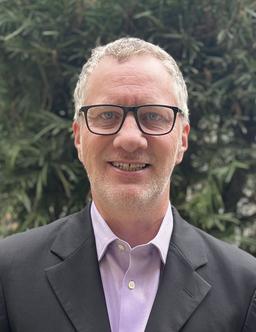
Christophe Le Mouël, Ph.D.
Dr. Christophe Le Mouël was tra conducted research at the University of Montpellier in France and Thessaloniki in Greece. He earned a master's degree in computer science and worked as a team manager and engineer at the French Alternative Energies and Atomic Energy Commission in Paris. He is currently the executive director of the C.G. Jung Institute of Los Angeles and the cochief editor of Psychological Perspectives, a quarterly journal of Jungian thought. Dr. Le Mouël is passionate about the psychology of C.G. Jung, which he discovered in his teens. He has published several articles on the connection of matter and psyche and has lectured on this topic nationally and internationally. He is a candidate-in-training at the Research and Training Centre in Depth Psychology According to C.G. Jung and M.-L. von Franz in Zürich. He also edited the forthcoming book of conversations with Marie-Louise von Franz, which describes her views on psyche and matter at the end of her life.


Dr. Peter Dunlap is a psychologist and an Assistant Professor of Pacific’s clinical psychology program. Dr. Dunlap is part of the Pacifica initiative to bring depth psychology more fully into the world to respond to the critical questions of our time. His research and teaching integrate clinical practice and community engagement. In his work he asks, “How do we become the people called for by our time?” And, in framing the issue in this manner he is learning about extending what works in clinical practice into our communities through the cultivation of a public emotional intelligence.


Camille Jarmie, Ph.D. is a licensed psychologist, and Assistant Professor in the Clinical Psychology program at Pacifica Graduate Institute. She received her Ph.D. in Clinical Psychology from Pacifica in 2018 following a Master’s Degree in Clinical Psychology from Lewis & Clark Graduate School of Education and Counseling specializing in counseling with children and adolescents in 2011. Her clinical areas of expertise focus on supporting birthing families during pregnancy, childbirth, and postpartum periods, as well as early attachment, work with children and adolescents, animal-assisted therapies through a depth orientation, and remedies to broader societal challenges which impact individuals’ mental, emotional, and bodily wellbeing. Dr. Jarmie’s areas of interest in research and scholarship mirror her clinical areas of expertise through a human sciences tradition which seeks to understand the meaning of these lived experiences, as well as the ways in which having a depth psychological sensibility itself may be a remedy to many of the ills of our time.
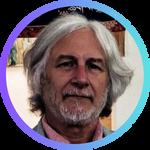
Kevin Volkan EdD, PhD, MPH is a founding faculty member and Professor of Psychology at California State University Channel Islands, where he researches and teaches courses on severe psychopathology, culture-bound disorders, and personality theory. Dr. Volkan currently serves on the Graduate Medical Education Faculty at Community Memorial Hospital and is also Adjunct Professor of Clinical Psychology at California Lutheran University. He joins Pacifica Graduate Institute in the clinical psychology program in the Fall of 2024 as Adjunct Faculty.
Kevin Volkan EdD, PhD, MPH (Cont.)
He holds doctorates in clinical and quantitative psychology and is a graduate of the Harvard School of Public Health. His training and experience is in archetypal psychology, psychoanalytic psychotherapy, applied behavior analysis, and embodied imaginal dreamwork. He is the author of Dancing Among the Maenads: The Psychology of Compulsive Drug Use, Schizophrenia: Science, Psychoanalysis, and Culture, and How the Mind Works: Concepts and Cases in Psychoanalysis and Psychotherapy. His latest book, Human Aggression, War, and Genocide will be published in the fall of 2024.


MARYBETH CARTER, PhD, is a Jungian analyst with a degree in religious studies with honors from Indiana University and a Ph.D. in clinical psychology from Pacifica Graduate Institute where she is an adjunct faculty. She is chair of IAJS and serves on the board of the C. G. Jung Institute of Los Angeles. She is coeditor of The Spectre of the Other in Jungian Psychoanalysis, published by Routledge, which won the 2023 Gradiva Award from the National Association for the Advancement of Psychoanalysis (NAAP).

Naomi Azriel, LMFT, is a Jungian analyst, scholar, activist and poet practicing in Oakland, CA. Her work can be found in the Jung Journal and Psychological Perspectives. She teaches and lectures internationally on the intersection of Jungian depth psychology with feminist and queer topics, including the Cassandra Complex, the transference field, dream work and the liberatory potential of trans identities.
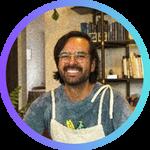
Chema Jiménez Orvañanos, MA. is a non-binary, Mexican, Jungian oriented psychotherapist and scholar practicing in Mexico City. Their work centers around queerness, gender and the deconstruction of masculinity. They are an organizing member of the International Queer Jungian Initiative and part of the Lesbianas Junguianas collective in South America.

Dr. Murrow seeks to contribute to the field of psychology by practicing as a clinician, teaching, and through the research of assessment and treatment methods. She enjoys working in traditional in-office therapy settings as well as partnering with equines and canines in animal-assisted therapies. She is an Assistant Professor and Research Coordinator in the Clinical Psychology department at Pacifica Graduate Institute, and shares psychological concepts in an accessible way through her podcast, Connection Therapy.


Jacqueline F. Moore holds a MA in Counseling Psychology from Pacifica Graduate Institute and a BFA in Fine Art Painting from the Academy of Art University. Jacqueline is a Licensed Marriage and Family Therapist currently in private practice in Ventura, California and serves on adjunct faculty at the Pacifica Graduate Institute. She is a meditator, recording musical composer, and fine art painter.

Dr. Monica Mody is Co-Chair and Assistant Professor in the Pacifica Graduate Institute’s Mythological Studies MA/PhD Program. Her areas of specialization include decolonial, indigenous, and women of color paradigms and epistemologies; Anzaldúan frameworks; earth-sourced and feminist spirituality and ritual; poetry, divination, oracular speech, and arts-based research; and nondual embodiment, in conversation with ancestral lineages from South Asia. Her creative and academic work have been widely published and presented in journals and edited books, at international and US-based conferences, and through invited talks. www.drmonicamody.com.

Jonathan Erickson, Ph.D., serves as core faculty in the Integral Transpersonal Psychology PhD program at the California Institute of Integral studies. He is the author of the book Imagination in the Western Psyche: from Ancient Greece to Modern Neuroscience and co-editor and contributor to the upcoming volume Soul in the Machine: Depth Psychology, Myth, and Artificial Intelligence.
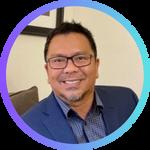

Felipe Capiral is a graduate of Pacifica Graduate Institute. He is a licensed MFT and is currently in private practice and concurrently a staff at the Coldwater Counseling Center as one of their part time psychotherapists. He is passionate about living one’s life fully and consciously.

Evans Lansing Smith, Ph.D., is a Professor of the Mythological Studies Program, which he served as Chair for twelve years. He traveled with Joseph Campbell in Northern France, Egypt, and Kenya, and has a Ph.D. from The Claremont Graduate School, an M.A. in Creative Writing from Antioch International, and a B.A. from Williams College. He has lectured widely and is the author of three books of poems, two novels, and ten academic studies of comparative literature and myth.
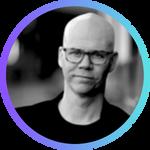
Bradley McDevitt, MA, ACC: With over three decades of experience creating, performing, and teaching physical theater around the world, Bradley McDevitt conveys this somatically integrated work in his creative consultancy as a core practitioner of Presence-Based® personal coaching and professional leadership development. Answering a call to address the growing meaning crisis through the cultivation of attention and embodied wisdom practices, Bradley created the Theater of Self program, bringing clients, participants, and especially young people, into closer relationship with the vast apparatus of meaning making tools available through embodied imagination and creative practice. Bradley is an adjunct faculty member at Pacifica, teaching the course The Complex Nature of Inspiration in the Humanities program. He lives in Chapel Hill, North Carolina, and is the founder of CarolinaCommons.org

Dr. Elizabeth Flood holds a Ph.D. and M.A. in Depth Psychology from Pacifica Graduate Institute and dual B.A. degrees in Psychology and Fine Arts from DePaul University, and is currently pursuing a M.A. in Counseling Psychology. Elizabeth has extensive experience in diversity, equity, and inclusion analysis, as well as program development and coordination for at-risk youth. She has created and led therapeutic arts programs in Chicago, Los Angeles, and Indonesia. Elizabeth is also trained in restorative justice practices and is a registered yoga teacher, further showcasing her commitment to holistic well-being and community engagement.


Dylan Martinez Francisco, Ph.D., is Co-Chair and an Assistant Professor of the Jungian and Archetypal specialization of M.A./Ph.D. program in Depth Psychology at Pacifica Graduate Institute. Dylan grounds his teaching in the depth psychology of C. G. Jung, decolonialism, and Mestizo/Mexican/Indigenous traditions that provide a primordial, holistic, and sacred worldview within which to understand the psyche, to embody its wholeness individually, and to live it relationally through honoring Spirit, the Ancestors, and the Land.

The Reverend Doctor Pamela D. Hancock is Core Faculty, Director of the Chaplaincy Program, and Co-Director of the Psychedelics Certificate at Starr King School for the Ministry. She is ordained clergy through Sacred Well Congregation. She is the Priestess of the Sisters of Moon and Snow Coven, and holds an MDiv. from Starr King School for the Ministry (2015). She received her Ph.D. in Depth Psychology from the Pacifica Graduate Institute in May 2022.

Carol Burbank, Ph.D. is a writer, creativity and writing coach, educator, and celebrator of deep play as somatic integration and expansion of psyche. She teaches Artist as Activist and Agent of Social Change in the Depth Psychology and Creativity Program. She is an award-winning playwright, scholar, and specializes in leading change from the core of the imaginal. Learn more at storyweaving.com.
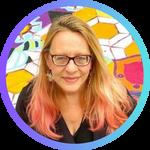
Susan Evergreen Hericks, Phd, has an artistic and psychological approach to being human. Her day to day work involves supporting PGI graduate students in the Depth PhD Integrative Therapy and Healing Practices specialization. An artist and lover of beauty medicine, ceremony, and social justice, she has a varied background in academia (English, Theology/Ethics, Depth Psychology) as well as rites of passage work, wilderness guiding, ceremonial play and art. She has been actively co-designing Ojai’s annual community Mandala since 2009, involving hundreds of painters of all ages.
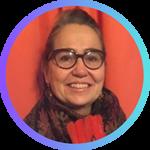

River Sauvageau, Artist, Ceremonialist and creator of the MandalaMedicineMovement.com
River Sauvageau is a community arts activist who has been leading the making of community mandalas in Ojai since 1993. She carries an Earth Altar that guides the principles upon which this work is based. She is an artist, teacher, lay minister and tipi maker. The Mandala Medicine Movement is her current focus, working on bringing this method of placemaking and connection to other communities. “I work to inspire creativity, free thinking, human connection, personal sovereignty and leadership.” studiosauvageau.com

Shelly Rudolph “A soulful vocalist that prefers not to be contained,” Soul Siren
Shelly Rudolph infuses jazz, blues and her own “powerfully romantic” material with intoxicating intimacy and unabashed revelation. As a performer, songwriter & poet, Shelly has traveled the world with ensembles that range from intimate duets to Jazz Orchestras. She is among the busiest vocalists in Portland, Oregon, performing and producing her own concerts and spoken-word projects, including collaborations with aerial dance companies, visual artists and jazz icons of the region. www.shellyrudolph.com
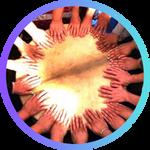
Although their drum (Iposi) came to them on June 4th of 2022, their drum circle started in the summer of 2015. They sit to educate, support, and pray for each other, their families, their communities including MMIWG2S peoples, Mother Earth, and all beings. They also sit and gather annually at their Veteran Women’s Indigenous Healing Circle to support veteran women and their families. In centering healing and social justice, using an ecological spiritual lens, they are better able to strive towards rematriation and a healthier and equitable relationship amongst themselves and their environment. Their drum is inter-tribal and women from several nations and Indigenous backgrounds sit around her from time to time, including members of Mixteca, Chickasaw, Nahuatl, Lipan Apache, Mapuche, Tlingit, Annishinabe, Chicana, Chumash, and others.

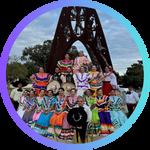
Grupo Folklórico Fusión Mexicana is a vibrant dance ensemble comprised of multiple Mexican dance groups across Santa Barbara, Ventura, and Los Angeles counties, founded by Carlos Mendez & Adrian Castellón Robles. Since their establishment in 2016, this talented group of dancers has traveled extensively within the United States and internationally, including China and Greece, to share their passion for traditional Mexican dance.
Their current directors, Adrian Castellón Robles and Dafne Aguilar, educate communities about Mexico’s rich cultural heritage, inspiring younger generations to appreciate and preserve these rich cultural traditions and foster cross-cultural understanding and exchange.
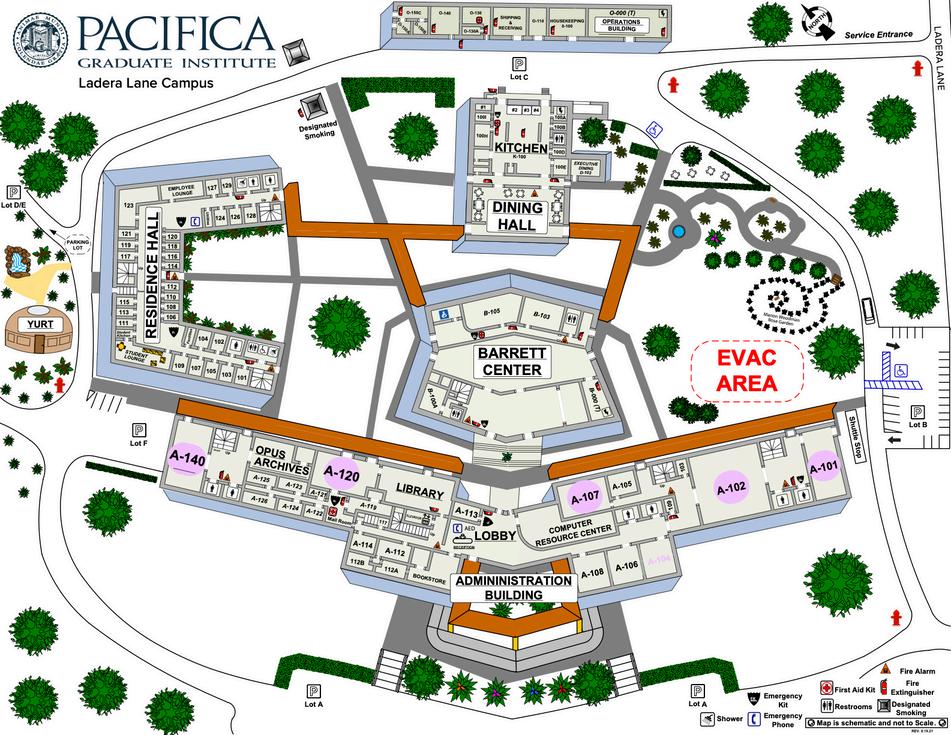
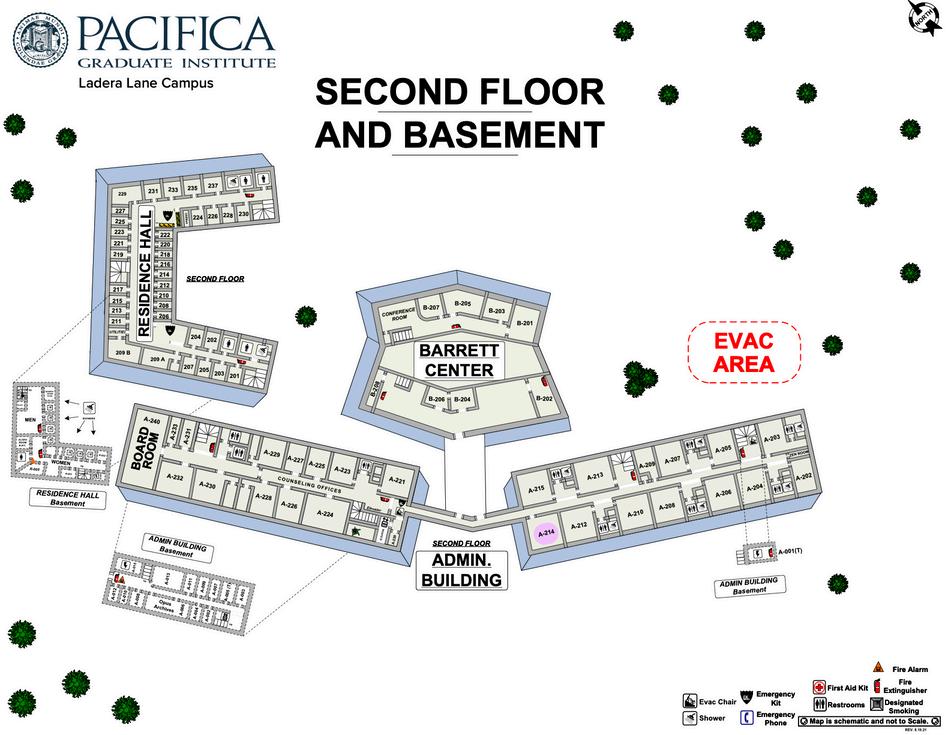
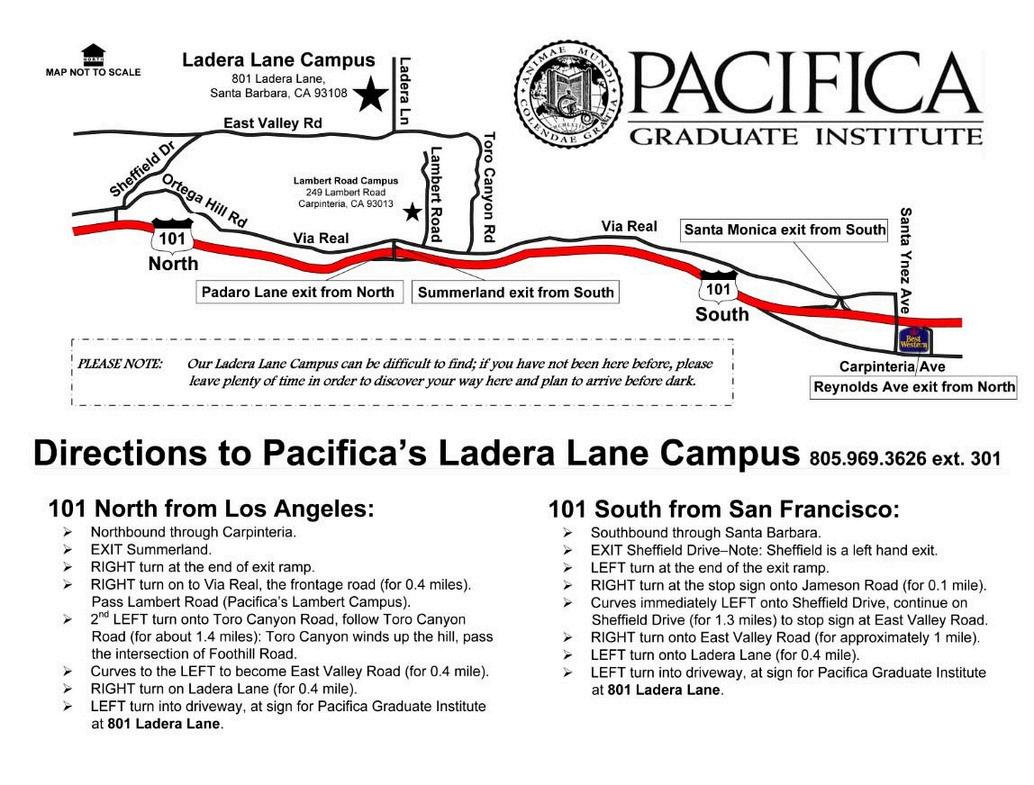
Pacifica’sLaderaLaneCampus
801LaderaLane,SantaBarbara,CA93108.
Housingaccommodationscanbereservedatthetimeofregistration,orbycontactingretreat@pacifica.edu
A14%SantaBarbaraCountyOccupancyTaxisadditionallyaddedtothelodgingfee.
AccommodationsintheResidenceHallatPacifica’sLaderaLaneCampusconsistofstandard,singlerooms These roomsincludeafullortwin-sizedbed,sink,mirror,desk,chair,smalldeskfan,andalarmclock,aswellasshelves andhangersforclothing.Alllinensandtowelsareincluded.OurResidenceHallhassharedmen’sandwomen’s bathroomandshowerfacilities.Allshowerstallsincludebathmatandsoap.Werecommendthatguestsbringallof theirowntoiletries.OurrecentlyrenovatedSemi-Suiterooms,locatedonthesecondflooroftheMainBuilding, includeaqueen-sizedbedwithasharedbathandshowerpereverytworooms.
TheResidenceHallhasaGuestLoungeontheFirstFloor,completewithcouchesandalargescreenTV Thereis alsoasmallkitchenettewithrefrigerator,waterdispenser,andmicrowave.
**Pleasenotethatifyouarestayingoncampus,youcancheck-inanytimeafter3PMonFriday, September27th.Ifyouarrivebefore3PM,thereisaluggagestorageroomwhereyoucankeepyour belongingsuntilyoucancheckintoyourroom.Wekindlyaskthatyoucheckoutofyourroomby3 PMSunday,September29.**
BestWesternCarpinteriaInn
4558CarpinteriaAvenue,Carpinteria,CA93013
(800)528-1234
ShuttleserviceisprovidedbetweentheBestWesterninCarpinteriaandtheLaderaLanecampus.
DrivingDirectionsFromSouthtoBestWesternCarpinteriaHwy101North:.WhenyoureachCarpinteria,takethe SantaMonicaRdexitandturnrightatthestopsign.TurnrightagainatthecornerofSantaYnezandViaReal,go overthefreewaybridge,andcontinuetothesignallights.TheInnwillbeonyourleftatthecornerofSantaYnez andCarpinteriaAve.
DrivingDirectionsFromNorthToBestWesternCarpinteriaHwy101South:Approximately10milespastSanta BarbaratotheReynoldsAveexitandcontinuetothestopsign.TheInnwillbeonyourrightatthecornerof CarpinteriaAveandSantaYnezAve
MajorairlinesprovideserviceintotheLosAngelesInternationalAirportlocated90milessouthofSantaBarbara andintotheSantaBarbaraMunicipalAirport,approximately18milesfromtheCampus.Additionally,thereisan AmtrakTrainStationlocatedindowntownSantaBarbara,approximately15milesfromtheBestWestern CarpinteriaInnand/ortheLaderaLaneCampus.Uber/Lyftandtaxiserviceisavailablefromtrainstation.
TheLosAngelesInternationalAirportisapproximately90milesfromtheSantaBarbara.Variouscarrentaloptions availableatLAX.Additionally,theSantaBarbaraAirbusprovidesbustransferservicetobothaCarpinteriadropofflocation(BetweenChaseBank&UnionBankattheCasitasPlazaShoppingCenter-1000CasitasPassRd)as wellasaSantaBarbaralocation(3845StateSt.,SantaBarbara93105).AtaxiserviceorUber/Lyftcanbetaken fromtheAirbusdrop-offlocationstotheLaderaLaneCampusortheBestWesternCarpinteria.Reservationsforthe Airbusarestronglyrecommended,andrateswillbediscountedifreservationsaremadeatleast48hoursinadvance Forschedulesandreservations,calltheSantaBarbaraAirbusat8059647759or8004231618oronlineat www.santabarbaraairbus.com.
TheSantaBarbaraAirportisapproximately20milesfromtheBestWesternCarpinteriaInnand/ortheLaderaLane Campus.Carrentalservicesareavailable.Additionally,Lyft/Ubersareavailableaswellastaxiservice.The followingcabcompaniesoftenofferspecialratesifreservationsaremadewellinadvanceandPacificaismentioned asyourdestination(viatheBestWesternordirectlytotheLaderaLanecampus):
BlueDolphin(805.962.6886)
RoseCab(8055642600)
CheckerCabCompany(8059646666)
FlybyNightTaxi(805.745.8294)
TransportationfromtheSantaBarbaraTrainStationThereisanAmtrakTrainStationlocatedindowntownSanta Barbara,approximately15milesfromtheBestWesternCarpinteriaInnand/ortheLaderaLaneCampus.Uber/Lyft andtaxiserviceisavailablefromthecompanieslistedabove,again,oftenwithspecialratesifreservationsaremade wellinadvanceandPacificaismentionedasyourdestination.
PacificaShuttle805-896-1887or805-896-1888
PacificaGraduateInstituteprovidescourtesyshuttlestocampusvisitorsTheshuttleisavailableanytimeduring businesshoursbycallingandrequestingapick-upTheshuttlewillberunningtheentiretyoftheconference weekend.
PacificaShuttlestops:
LaderaCampus(801LaderaLane,SantaBarbara)
LambertCampus(249LambertRoad,Carpinteria)
BestWesternPlusCarpinteriaInn(4558CarpinteriaAve,Carpinteria)
SBAirbusCarpinteria(5400CarpinteriaAve,Carpinteria)
CarpinteriaAmtrakStation(475LindenAve,Carpinteria)
ServiceisnotavailablefromtheSBAirportinGoleta.
WhocanIcontactwithanyquestions?
PleasecontactTheRetreatatPacificaGraduateInstituteatretreat@pacifica.edu.
Whataremytransportationandparkingoptions?
Ifyouarenotrentingacar,transportationisavailabletoSantaBarbarafromLAXairportviatheSantaBarbara Airbus.AmtrakstopsinbothCarpinteriaandSantaBarbara.TaxiserviceisavailablefromSantaBarbaraAirport, andallpublictransportationdepots.OpenparkingisavailableatourLaderaLaneCampus7daysaweek.
Howdoesthecheck-inandcheck-outprocesswork?
Pleasecheck-inwithreceptionattheLaderaLaneFrontLobbyanytimeafter3pm.Youwillbegivenakeytoyour roomatthattime.Checkouttimeis11am.Pleasereturnyourkeytothefrontdeskwhencheckingout.Pleasedo notleavethekeyintheroom.Wegreatlyappreciateyourtimelinessinthecheck-outprocess.Thisallowsour housekeepingstafftoturntheroomsaroundbeforeournextprogramchecksin. Whichmealsareincludedinmystay?
Ifyoupurchasedthemealpackage,SaturdayBreakfast,SaturdayLunch,SaturdayDinner,andSundayBreakfastare included Atablewillbesetupattheentrancetothedininghalltocollectmealticketsduringeachmeal.Meal ticketscanbepickedupatthereceptiondeskuponcheckin. Whattypesofmealsdoyouoffer?WhatifIhavedietaryconcerns?
Ourcateringcompanyoffershealthy,wholemeals.Theyoffervegetarianaswellasveganoptionsandincludelocal andorganicingredientswheneverpossible.Ifyouhavemedicallyrestricteddietaryconcerns,pleasenoteitonyour registrationformorsendanemailtoretreat@pacifica.edu.


Visit the Pacifica Graduate Institute Bookstore!
The Pacifica Graduate Institute Bookstore will be open throughout the conference weekend.
The Bookstore is located in the lobby at the Ladera Lane campus next to the reception desk.
The bookstore will be featuring many Pacifica Graduate Institute faculty books including those by Journey Week Conference presenters.